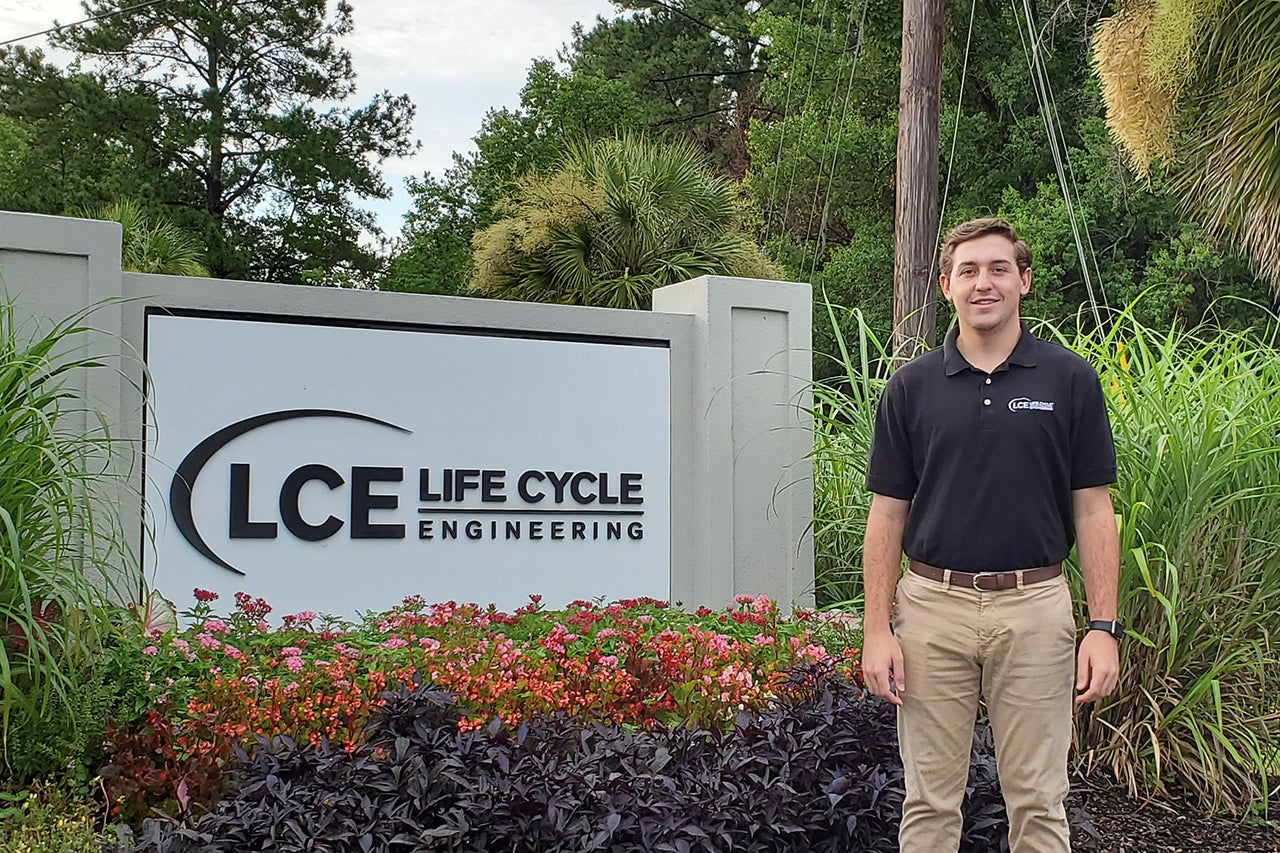Evan Sliker likes numbers. He likes a good challenge. And he likes to know the ins and outs of things.
That’s why the College of Charleston senior is majoring in mathematics with a concentration in actuarial science.
“I chose to enter the field of math because I always enjoyed problem solving and learning how and why everything works,” says Sliker.
Then the world of computer science came across his radar when he took Intro to Cybersecurity as an elective his junior year. His world of numbers expanded into code and electronic data. He liked the virtual world of math and science so much that he added a computer science minor to his academic goals.
“That class was the turning point in my college career where I felt I found my passion,” says Sliker. “I was able to incorporate my mathematical background, while solving practical problems in a creative and interesting way.”
Sliker has spent the summer putting his newfound interests to work through the Charleston Defense Contractors Association (CDCA) internship program as a system administration intern for Life Cycle Engineering (LCE), which provides a variety of engineering services, including cybersecurity support, to industries, public entities and the military.
The College Today caught up with Sliker to learn more about his internship, what he’s learning about cybersecurity and how that knowledge is influencing his career aspirations.
How did you hear about the CDCA internship program?
The internship through the CDCA interested me because it is an organization made up of many well-known and respected defense contractors. I heard about CDCA through classmates, who were also interested in cybersecurity. Later in the semester, I came across a CDCA-sponsored internship position at Life Cycle Engineering.
How are you putting what you’ve learned in the classroom to use in your internship?
Many of my classes have helped with skills needed for my internship. Programming, databases and command line are all essentials to working in the cybersecurity field. The math courses I have taken have also been vital to my internship, as understanding cryptography and algorithms are some of the hardest, but most important areas of cybersecurity.
What are the duties of your internship with Life Cycle Engineering?
The system administration internship consists of a curriculum covering 10 weeks of material and hands-on learning. Topics include networking, virtualization, Linux and Windows installation and configuring, software testing and cybersecurity.
Each topic leads into another, so that by then end of the internship we have installed a bare metal hypervisor on servers, created virtual machines (VMs), installed different operating systems on each of the VMs, installed databases and applications on the operating systems and then run tests and scans to ensure that the systems were not vulnerable and that they meet the Security Technical Implementation Guides, the configuration standards for the Department of Defense.
When I wasn’t not working on the curriculum, I was able to assist with an event that LCE has put on every year since 2012 called Hack Warz®. The event is a capture-the-flag ethical hacking competition, where teams of competitors try to find tokens in a Hack Warz® cyber range–training environment. I was able to assist in testing the environment before the event, learning tools and common exploits used by attackers. I have also gained knowledge in Amazon Web Services, on-demand cloud computing platforms, while working alongside ongoing projects.
What’s the most surprising thing you’ve learned so far through this internship?
The most surprising thing that I learned at my internship is the importance of in-depth defense and levels of security. No system is 100 percent protected, and the only sure way to harden a system is through many layers of security every step of the way. However, human error and social engineering will always be the biggest vulnerabilities.
How has this experience shaped your future goals and interests?
This internship has confirmed that cybersecurity is my passion and that I want to continue pursuing it as a career. Life Cycle Engineering has given me resources for study materials and weekly classes centered on the Security+ certificate, an industry-level standard for cybersecurity professionals. I will take the test before the end of the internship. This internship has set me up to be successful and is continuing to supply me with resources, direction and connections even after the internship is over.




